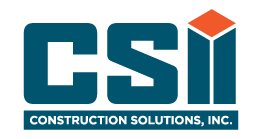Managing a construction project can be a complex and challenging task, but with the right approach and tools, you can ensure that everything runs smoothly and efficiently. Whether you’re working on a small residential build or a large commercial project, understanding the core principles of construction management is key to completing the job on time, within budget, and to a high standard of quality.
In this blog post, we’ll share essential construction management tips to help guide you through the process of managing a construction project from start to finish.
1. Develop a Detailed Project Plan
One of the most critical aspects of construction management is creating a comprehensive project plan. This plan should outline all phases of the project, key milestones, resources needed, and timelines for each task. It’s important to anticipate potential challenges and build in contingencies to avoid delays.
Key Tip: Use project management software to track tasks, deadlines, and responsibilities. This will help you stay organized and ensure everyone involved knows their role.
2. Set Clear Communication Channels
Effective communication is a cornerstone of successful construction management. Establishing clear communication channels between the project team, subcontractors, and clients can prevent misunderstandings and keep the project on track.
Key Tip: Regular meetings and updates are essential. Consider using collaboration tools like Slack, Microsoft Teams, or Monday.com to keep all stakeholders informed.
3. Budget Management
Keeping a close eye on the budget is one of the most important construction management tips for success. Construction projects often face unexpected costs, so managing the budget diligently is crucial to prevent overspending.
Key Tip: Always build in a buffer for unexpected expenses and track every cost, no matter how small. Use budgeting software to monitor expenses in real time.
4. Risk Management
Construction projects are inherently risky, with potential issues like weather delays, equipment failures, and material shortages. Identifying risks early and having mitigation strategies in place can help you handle these situations with minimal disruption.
Key Tip: Perform a thorough risk assessment during the planning phase and revisit it regularly as the project progresses.
5. Prioritize Quality Control
Quality is key in construction, and failing to maintain high standards can lead to costly rework and damage to your reputation. Establishing strict quality control measures at every phase of the project will help ensure the work meets both safety standards and client expectations.
Key Tip: Conduct regular site inspections and ensure that all team members are aware of quality expectations from the outset.
6. Time Management
Meeting deadlines is critical in construction management. A delay in one phase can have a ripple effect on the entire project, leading to increased costs and dissatisfied clients.
Key Tip: Break the project into smaller tasks with their own deadlines. This allows for better tracking and ensures that each part of the project moves forward as scheduled.
7. Maintain Strong Contractor Relationships
Your subcontractors are an essential part of your project’s success. Building strong, trustworthy relationships with them ensures that the work is completed efficiently and to the desired standard.
Key Tip: Foster clear and respectful communication with your contractors and ensure they understand project expectations from the start. Reliable contractors can make a significant difference in meeting deadlines and maintaining quality.
8. Stay Updated on Compliance and Safety Regulations
Construction projects must comply with local building codes and safety regulations. Failure to meet these standards can result in costly fines and delays.
Key Tip: Make sure your team is trained in the latest safety protocols and always stay up to date on any changes in local regulations that may affect your project.
9. Monitor Progress Regularly
Consistently tracking the project’s progress helps ensure that deadlines are met and the project stays within budget. This also allows you to quickly address any emerging issues before they escalate.
Key Tip: Use progress tracking software and conduct regular on-site visits to ensure the project is moving forward as planned.
10. Post-Project Review
Once the project is completed, a post-project review can provide valuable insights for future projects. Analyze what went well, what could have been done better, and how to improve efficiency in the future.
Key Tip: Engage the entire project team in the review process to gather diverse perspectives on the project’s successes and challenges.
Effective construction project management is all about planning, communication, and flexibility. By implementing these construction management tips, you can ensure that your projects are completed successfully, on time, and within budget. Keep refining your processes, invest in the right tools, and always focus on maintaining strong relationships with your team and clients.
